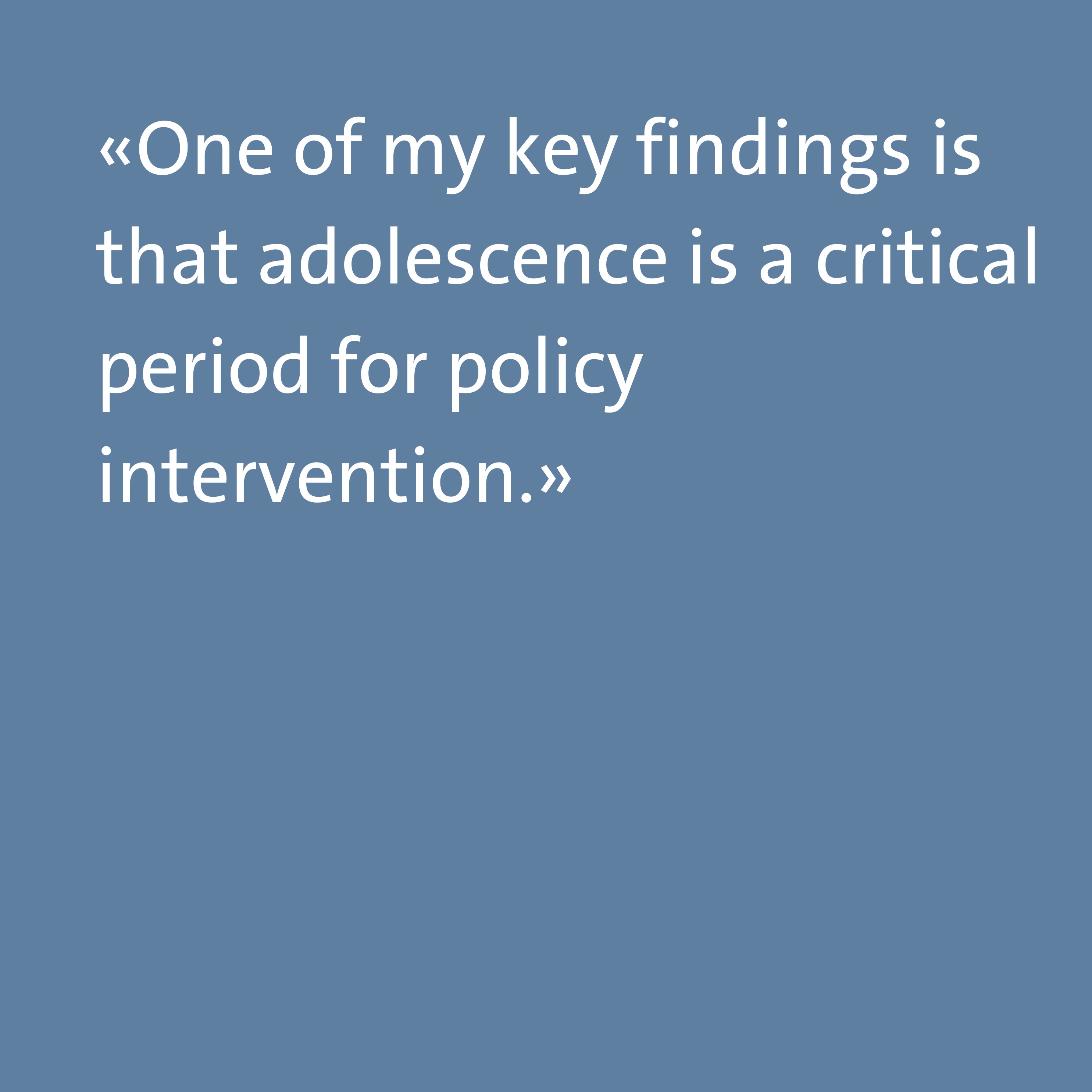Five Questions for Carmen Villa
Carmen Villa has joined the Department as of September 1st, as an Assistant Professor in Economics of Child and Youth Development Age.

Carmen Villa has joined the Department as of September 1st, as an Assistant Professor in Economics of Child and Youth Development Age. She is also affiliated to the Jacobs Center for Productive Youth Development.
What are the topics you are currently working on?
I study the effects of public policies on youth development. My research focuses on adolescence and examines how different public interventions causally affect educational outcomes, engagement in risky behaviours, and mental health and wellbeing. Some of my work explores the role of public after-school programmes, alcohol and substance regulations, housing policies, and cash-transfer schemes.

What is the main finding of this work?
One of my key findings is that adolescence is a critical period for policy intervention. For instance, my paper “The Effects of Youth Clubs on Education and Crime” provides the first causal evidence that after-school activities offering semi-structured support can be as effective as formal education in improving test scores and preventing offending. The results indicate that investments in such programmes can yield returns comparable to those made earlier in childhood, especially among young people from disadvantaged backgrounds. This work builds on evidence from psychology and sociology emphasising adolescence as a key stage for development and challenges the notion that it is too late for meaningful policy impact.
Is there another important specific work of yours that you would like to mention?
Alongside identifying what works, an important part of my research tries to understand what does not. Policies often fail to achieve their intended objectives, and learning from these cases is equally valuable. One of my current projects, “Paying Disadvantaged Teenagers to Stay in School,” shows that conditional cash transfers designed to incentivise school attendance did not generate long-term benefits in a developed-country context, in contrast to findings from developing settings. This raises broader questions about how policy design interacts with local institutions and incentives, which are some of the key topics UZH faculty are making advances on.
You have recently joined UZH, what motivated you to come to Zurich?
I was drawn by the opportunity to work with world-class colleagues in labour economics, public economics, and youth development at the Department of Economics and the Jacobs Center for Productive Youth Development. More broadly, UZH offers an exceptional research environment with strong support to address some of the most important questions in our field. Its reach in teaching, policy engagement, and international networks means the work we do can have an impact beyond academia, something I find particularly motivating.

Who is the inspiration behind your work?
I draw inspiration from the contexts I live in, from conversations with friends, family, and the broader community, as well as from academic research and public debate. My work sometime starts with a simple question that I can’t find a clear answer to in the literature. That curiosity becomes the starting point for a new project.